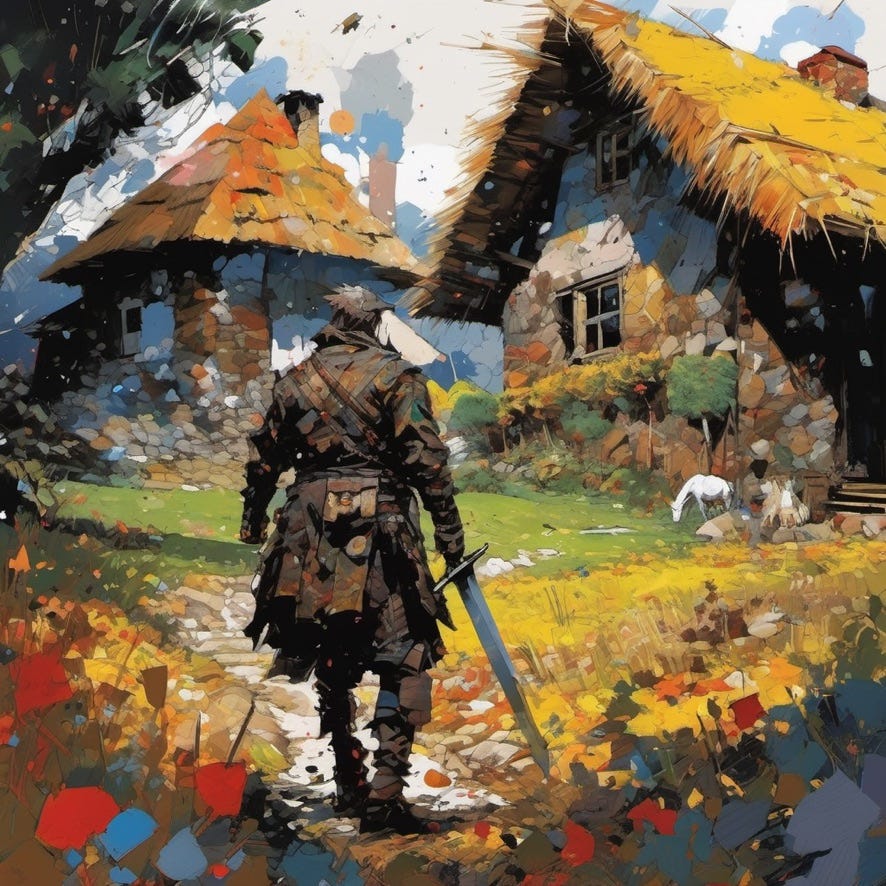Ziklag W8.21 - Maker, Wanderer, Bard
JRR Tolkien in His Own Words
S.O.S.
Without fear, it all comes together as a gift. cf Pr 11:25
There is one path, and suffering it is glory. cf Mt 10:38
Tolkien
J.R.R. Tolkien, born on January 3, 1892, in Bloemfontein, South Africa, is renowned not only as a literary giant but also as a scholar whose work reflects his deep engagement with language, mythology, and history. Tolkien’s early life was marked by loss, with the death of his father when he was just three years old and his mother when he was twelve. These experiences, coupled with his love for languages and stories, profoundly shaped his imaginative world.
Educated at Exeter College, Oxford, Tolkien’s academic focus on philology—a study of languages and their histories—would later become a cornerstone of his literary creations. His deep love for ancient languages and myths inspired him to create entire worlds, languages, and histories in his famous works. He once remarked, “The invention of languages is the foundation. The ‘stories’ were made rather to provide a world for the languages than the reverse.”
Tolkien’s experience in World War I further influenced his work, particularly his views on heroism, fellowship, and the corrupting influence of power. His time in the trenches informed much of the dark and perilous journeys his characters undertake, particularly in The Lord of the Rings. He believed that “fantasy remains a human right: we make in our measure and in our derivative mode, because we are made: and not only made, but made in the image and likeness of a Maker.”
His first major publication, The Hobbit (1937), introduced readers to Middle-earth, a world that would be further explored and expanded in The Lord of the Rings trilogy (1954-1955). These works, while deeply entertaining, were also rich in philosophical and theological reflections, drawing heavily from Tolkien’s own Catholic faith. He saw his creation of Middle-earth as a form of “sub-creation,” a way for humans to reflect God’s creative power. “We have come from God, and inevitably the myths woven by us, though they contain error, will also reflect a splintered fragment of the true light, the eternal truth that is with God,” he wrote, highlighting his belief in the divine inspiration behind storytelling.
Tolkien’s writing was characterized by its intricate detail, profound moral questions, and a deep sense of nostalgia for a lost world. He lamented the industrialization of the modern age, seeing it as a destructive force that eroded the beauty of nature and the simplicity of life. This is reflected in his portrayal of the Shire, a pastoral haven threatened by the encroachment of industrialization represented by Saruman’s machinery. “I am in fact a Hobbit (in all but size),” he famously declared, expressing his affinity for the simple, rural life that he felt was under threat.
Tolkien’s work also delved into the nature of evil and the temptation of power. The One Ring, central to The Lord of the Rings, symbolizes the corrupting influence of absolute power—a theme that resonated with the events of the 20th century. He wrote, “The Lord of the Rings is of course a fundamentally religious and Catholic work; unconsciously so at first, but consciously in the revision.” This deep moral underpinning is what gives his work its lasting impact.
Beyond his literary achievements, Tolkien was also a dedicated academic, spending much of his career as a professor at Oxford University. He contributed significantly to the study of Old and Middle English literature, and his academic work was held in high regard. Yet, it is his fictional works that have had the most profound influence, inspiring countless readers and writers, and shaping the modern fantasy genre.
J.R.R. Tolkien’s life and work reflect a deep engagement with the complexities of language, myth, and morality. His stories, rooted in his academic interests and personal beliefs, have become some of the most beloved and enduring works of literature in the 20th century. Tolkien’s legacy is one of creativity, imagination, and a profound understanding of the human condition, captured in his belief that “not all those who wander are lost.”








